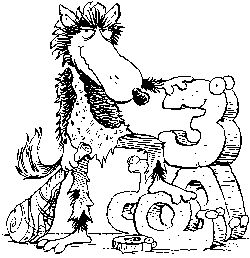Programmer's
Editor 14.04
Context:
| Epsilon User's Manual and Reference |
| . . . |
| Introduction to EEL |
| Epsilon Extension Language |
| Primitives and EEL Subroutines |
| Buffer Primitives |
| Display Primitives |
| File Primitives |
| . . . |
| Defining Language Modes |
| Error Messages |
| Changes from Older Versions |
| . . . |

| Previous | Up | Next |
| Syntax Summary | Epsilon User's Manual and Reference | Changing Buffer Contents |
Epsilon User's Manual and Reference >
Primitives and EEL Subroutines
 In this chapter, we describe all EEL primitives, as well
as a few useful EEL subroutines. In Epsilon, the term "primitive"
refers to a function or variable that is not written or defined in
EEL, but rather built into Epsilon.
In this chapter, we describe all EEL primitives, as well
as a few useful EEL subroutines. In Epsilon, the term "primitive"
refers to a function or variable that is not written or defined in
EEL, but rather built into Epsilon.
It's possible for one command to call another command, as if it were a subroutine with no parameters, but commands are usually written to be called in the context of Epsilon's main loop (see The Main Loop), not from other commands. New Epsilon commands should generally call the functions defined in this chapter, not other commands, except in the case of a new command that simply adds some functionality to an existing single command.
Each section discusses items that pertain to a particular topic, and begins with EEL declarations for the items discussed in that section. If we implemented an item as an EEL subroutine, the declaration often includes a comment that identifies the EEL source file defining the item.
Some EEL primitives have optional parameters. For example, you can
call the get_tail() primitive as either get_tail(fname, 1)
or get_tail(fname). Any missing parameter automatically takes a
value of zero. In this manual, we indicate an optional parameter by
showing a ? before it.
When writing EEL extensions, an easy way to look up the documentation on the primitive or subroutine at point is to press F1 F <Enter>. That displays the help in Info mode. Or you can use Shift-F1 to display it in a web browser.
In this chapter:
Buffer PrimitivesChanging Buffer Contents
Moving Text Between Buffers
Getting Text from a Buffer
Spots
Narrowing
Undo Primitives
Searching Primitives
Regular Expression Searching
Searching Subroutines
Moving by Lines
Other Movement Functions
Sorting Primitives
Other Formatting Functions
Comparing Primitives
Managing Buffers
Catching Buffer Changes
Listing Buffers
Display Primitives
Creating & Destroying Windows
Window Resizing Primitives
Preserving Window Arrangements
Pop-up Windows
Pop-up Window Subroutines
Window Attributes
Buffer Text in Windows
Window Titles and Mode Lines
Normal Buffer Display
Screen Dimensions
Character Display
Character Widths and Columns
Displaying Status Messages
Printf-style Format Strings
Other Display Primitives
Highlighted Regions
Character Coloring
Code Coloring Internals
Colors
File Primitives
File Reading Primitives
File Writing Primitives
Line Translation Primitives
Character Encoding Conversions
More File Primitives
File Properties
Low-level File Primitives
Directories
Dired Subroutines
Manipulating File Names
Internet Primitives
Parsing URLs
Tagging Internals
Operating System Primitives
System Primitives
Window System Primitives
WinHelp Interface
Menu Bar Primitives
Tool Bar Primitives
Printing Primitives
Timing
Calling Windows DLLs
Running a Process
Concurrent Process Primitives
Other Process Primitives
Control Primitives
Control Flow
Character Types
Examining Strings
Modifying Strings
Byte Arrays
Memory Allocation
The Name Table
Built-in and User Variables
Buffer-specific Variables
Bytecode Files
Starting and Finishing
EEL Debugging and Profiling
Help Subroutines
Input Primitives
Keys
The Mouse
Mouse Cursors
Mouse Subroutines
The Scroll Bar
Mouse Panning
Window Events
Completion Subroutines
Completion Internals
Listing Commands & Buffers & Files
Other Input Functions
Dialogs
Standard Dialogs
Button Dialogs
Windowed Dialogs
The Main Loop
Binding Primitives
Defining Language Modes
Language-specific Subroutines
| Previous | Up | Next |
| Syntax Summary | Epsilon User's Manual and Reference | Changing Buffer Contents |
![]()
![]() Epsilon Programmer's Editor 14.04 manual. Copyright (C) 1984, 2021 by Lugaru Software Ltd. All rights reserved.
Epsilon Programmer's Editor 14.04 manual. Copyright (C) 1984, 2021 by Lugaru Software Ltd. All rights reserved.